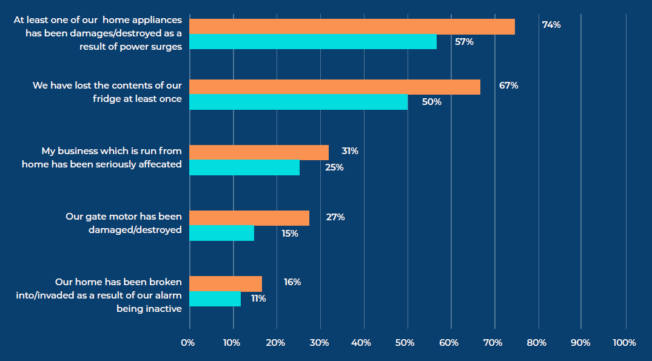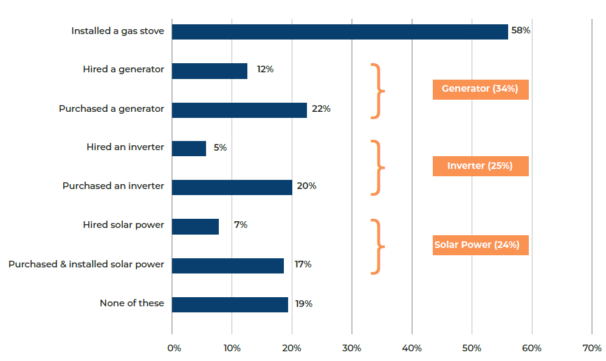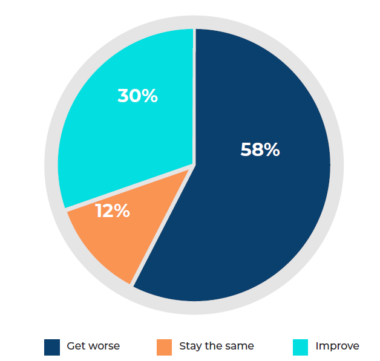Seventy-four percent of respondents say at least one of their home appliances has been damaged or destroyed because of power surges – an increase of 17 percentage points from 2022, according to a survey by TrendER/infoQuest.
In April 2022, TrendER/infoQuest, an online research provider, monitored the effects of blackouts on consumers. The survey was repeated a year later. Three hundred respondents, aged 18 years and older, were interviewed across the nine provinces.
Blackouts are having a more severe impact on consumers compared to a year ago, with respondents reporting more incidents of damage to appliances and gate motors, food spoilage, and crime related to inoperative burglar alarms.

In addition to having to repair or replace household items, consumers are having to finance ways to keep the power on in their homes.
Overall, about 80% of respondents have made alternate arrangements of some sort to cope with blackouts, and almost 60% say they have installed a gas stove.
Purchasing or hiring generators is the most common form of supplementary power (34% of respondents), while 25% have bought or hired an inverter, and 24% have bought or hired a solar power system.

“Compared with a year ago, South Africans are having to dip even deeper into their pockets to alleviate some of the consequences and challenges of loadshedding. This puts strain on the consumer in an already tough economic climate,” said Mogorosi Mashilo, the managing director of TrendER/infoQuest.
The survey found that substantial behaviour changes have occurred when it comes to grocery shopping and preparing meals.
About three in four consumers are buying fewer groceries more often to reduce the risk of food wastage, while two in three claim the types of meals they prepare have changed dramatically. About one in two say they eat out more.
Work-life balance has also been affected, with 48% saying they now leave home earlier to get to work, and they return home later.
Forty percent of parents claim their children’s performance at school has deteriorated because they cannot study or do homework when there is no power.
Security is also an issue, with 56% of respondents saying they have taken extra security measures in their homes to ensure they are safe when the alarm is inoperative during loadshedding.
Fifty-eight percent of respondents believe loadshedding will get worse over the next year. Women tend to be more pessimistic than men, while older South Africans are also more negative than those in the younger age categories.




